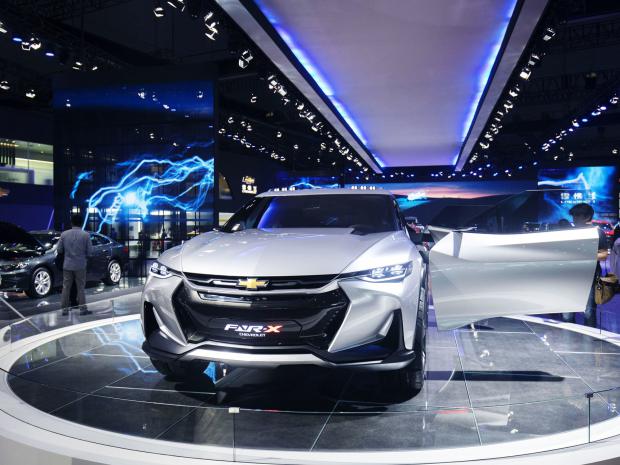
Breaking News
 Pentagon To Send 200 Troops to Nigeria
Pentagon To Send 200 Troops to Nigeria
 Trump Says He May Send Second Aircraft Carrier to Middle East To Prepare for Potential Attack...
Trump Says He May Send Second Aircraft Carrier to Middle East To Prepare for Potential Attack...
 A Market Crash and Recession Are Bullish, Not Bearish
A Market Crash and Recession Are Bullish, Not Bearish
 What Are They Still Hiding? New Epstein Questions Point to a Much Bigger Cover-Up
What Are They Still Hiding? New Epstein Questions Point to a Much Bigger Cover-Up
Top Tech News
 Drone-launching underwater drone hitches a ride on ship and sub hulls
Drone-launching underwater drone hitches a ride on ship and sub hulls
 Humanoid Robots Get "Brains" As Dual-Use Fears Mount
Humanoid Robots Get "Brains" As Dual-Use Fears Mount
 SpaceX Authorized to Increase High Speed Internet Download Speeds 5X Through 2026
SpaceX Authorized to Increase High Speed Internet Download Speeds 5X Through 2026
 Space AI is the Key to the Technological Singularity
Space AI is the Key to the Technological Singularity
 Velocitor X-1 eVTOL could be beating the traffic in just a year
Velocitor X-1 eVTOL could be beating the traffic in just a year
 Starlink smasher? China claims world's best high-powered microwave weapon
Starlink smasher? China claims world's best high-powered microwave weapon
 Wood scraps turn 'useless' desert sand into concrete
Wood scraps turn 'useless' desert sand into concrete
 Let's Do a Detailed Review of Zorin -- Is This Good for Ex-Windows Users?
Let's Do a Detailed Review of Zorin -- Is This Good for Ex-Windows Users?
 The World's First Sodium-Ion Battery EV Is A Winter Range Monster
The World's First Sodium-Ion Battery EV Is A Winter Range Monster
 China's CATL 5C Battery Breakthrough will Make Most Combustion Engine Vehicles OBSOLETE
China's CATL 5C Battery Breakthrough will Make Most Combustion Engine Vehicles OBSOLETE
In the Age of Trump, China Eyes Electric Car Dominance

Audi revealed the E-Tron Sportback concept, a potential Tesla Model X competitor. Volkswagen unveiled the Crozz, part of its post-Dieselgate, all-electric apology tour. Chevrolet, Buick, Renault, Citroen, and Jaguar showed off battery-powered cars. So did the local Chinese players, like Denza, Chery, Lynk & Co, and Nio.
Compare that scene to the 'bigger is better vibe of this month's New York International Auto Show, where Dodge showed off the atmosphere-punishing Demon and Volkswagen unveiled its enormous Atlas SUV, which will launch in the US with just one powertrain option: a V6 engine.
Announcing a new car in one place or another is a mostly symbolic choice, but the Shanghai show's emphasis on zero-emissions indicates an industry-wide shift in focus. Over the past decade, the US—home to Tesla, Chevy (maker of the Volt and Bolt), and a major market for Nissan's Leaf—has played the electric frontrunner. That's mostly thanks to regulations that demand automakers produce zero-emission vehicles alongside their profit-generating, gas-guzzling SUVs and pickups.



